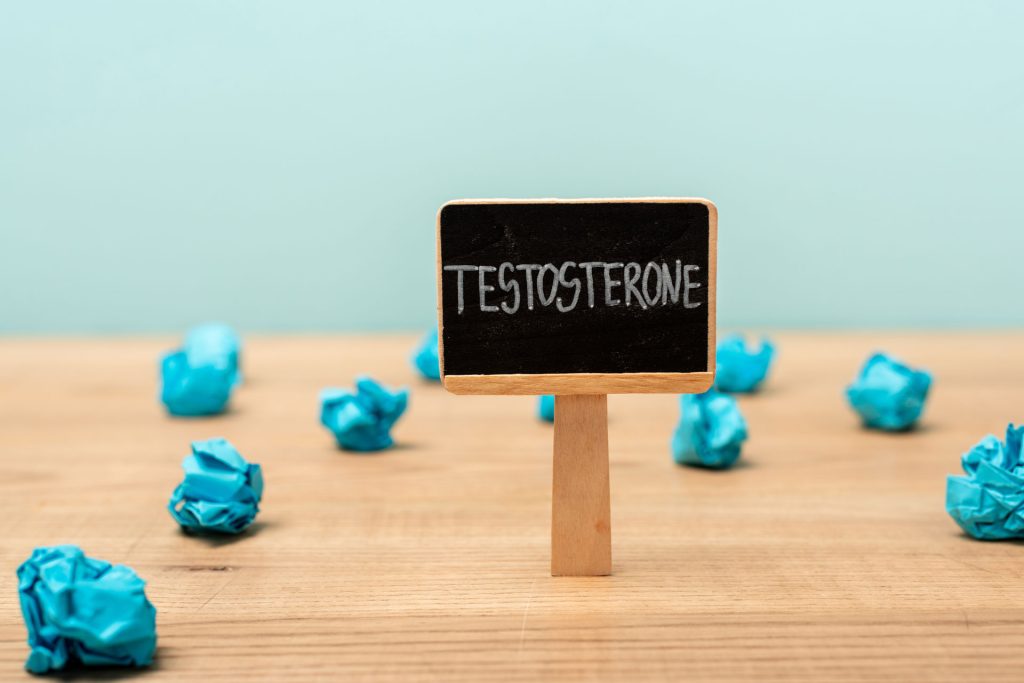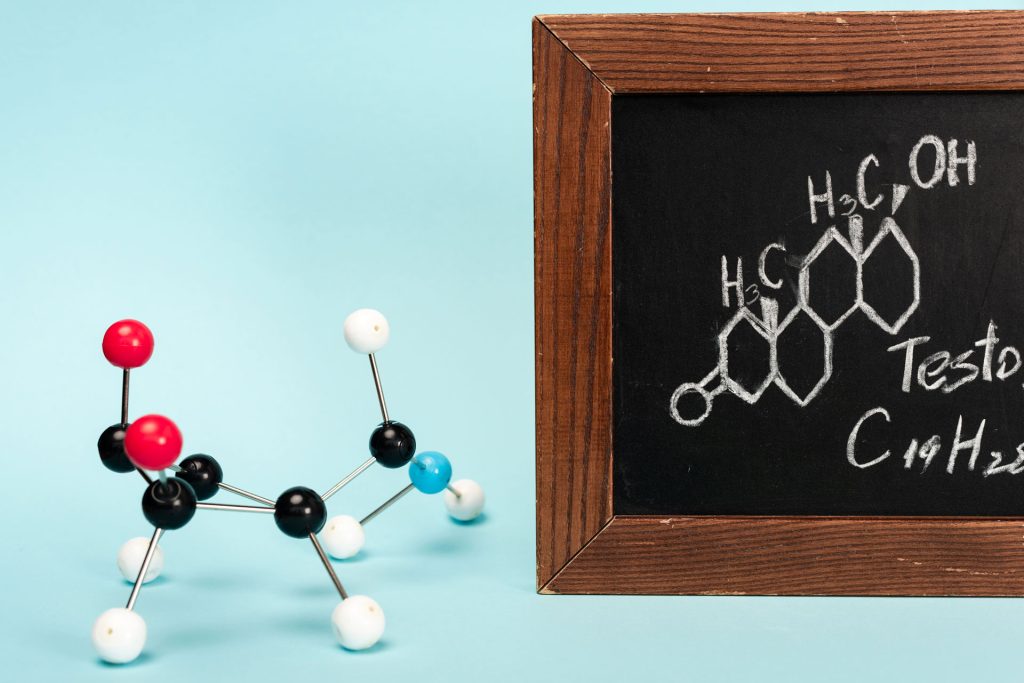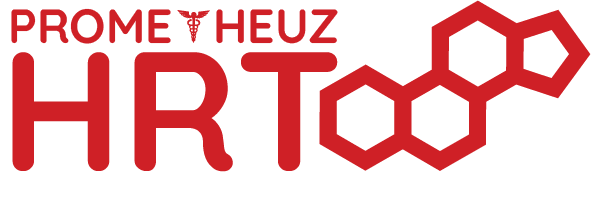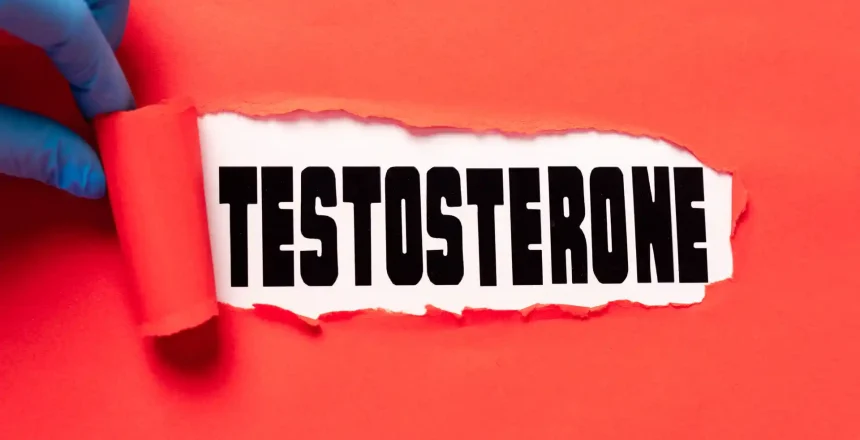We all deserve to lead active and fulfilling lives throughout the years. However, as men age, a natural decline in testosterone levels can diminish vitality and energy. This reduction may leave a man feeling lethargic, inactive, and occasionally even depressed.
Fortunately, advancements in the medical field offer a solution. Today, we can effectively restore normal testosterone production through testosterone replacement therapy for men. This innovative approach revitalizes not just the body but also enhances overall well-being, allowing men to reclaim the vibrancy and enjoyment of life. Below, we will explain in detail what testosterone therapy is, its benefits, side effects, and some alternatives to TRT.
What is Testosterone?
Testosterone is primarily linked to males, being a hormone predominantly produced in the testicles. However, a smaller portion is also generated in the adrenal glands. While women do have testosterone in their bodies, the levels are considerably lower compared to men.
Testosterone is pivotal in shaping male characteristics, contributing significantly to the development of primary features such as male genitalia. Additionally, it plays a crucial role in the emergence of secondary male traits, including muscle development, deepening of the voice, and the establishment of characteristic hair patterns.

What are the primary functions of testosterone in the body?
The regular production of testosterone holds immense importance in the body due to its pivotal roles. The key functions of testosterone include:(R)
- Boosting Energy Levels
- Cardiovascular Protection
- Sperm Production
- Muscle Building
- Increased Bone Density
- Red Blood Cell Production
- Regulates Sex Drive
- Fat Distribution
Why do Testosterone levels decrease in the body?
As discussed above, the production of testosterone declines in men as they age. According to one medical study, the testosterone level generally starts declining by 1% when a person reaches 30 or 40. [R]
Besides the natural decline, there are also some other factors responsible for the low production of testosterone. The most common ones are: (R)
- Hypogonadism
- Pituitary Gland Disease
- Testicular Injury
- Trauma
- Long Term Depression
- Alcohol Consumption
- Chemotherapy
- Sleep Deprivation
- Obesity
- Poor Nutritional Status
What are the signs and symptoms of low testosterone?
Below are some of the common signs and symptoms associated with low testosterone in the body: [R]
- Reduced Sex Drive
- Fatigue
- Erectile Dysfunction
- Loss of Lean Muscle Mass
- Depression
- Decreased Zest for Life
- Cognitive Decline
- Osteoporosis
What is Testosterone Replacement Therapy (TRT)?
Testosterone replacement therapy becomes necessary when an individual’s body fails to produce an adequate amount of testosterone, leading to challenges related to hormonal imbalances. It’s important to note, however, that testosterone replacement therapy is not the sole remedy for Hormone optimization.

What are the different types of Testosterone Replacement Therapy?
There are different types of testosterone replacement therapy. The type of therapy an individual will undergo is based on the prescription of the medical doctor. Commonly used testosterone replacement therapies are given below:
1. Pellets
Pellets smaller than a grain of rice exhibit faster efficacy in comparison to alternative TRT therapies. Administered beneath the skin, typically in the upper hips or buttocks, these pellets steadily release testosterone over a span of approximately 3 to 6 months. (R)
2. Oral Tablets
Testosterone tablets are available, but they are not usually recommended by doctors. Only two testosterone tablets are approved by the FDA. It is due to its negative effects on liver health.
3. Gel
Testosterone gel is topically applied to the skin, necessitating a minimum of three applications per day. Following application, individuals should avoid direct contact with others to prevent transfer. Alternatively, it is occasionally applied to each nostril, a method that may occasionally lead to a runny nose.
4. Injections
Sometimes patients are treated with testosterone injections. They are injected directly deep into the muscle. Sometimes, they are injected just under the skin. ® The duration of injection therapy varies from weeks to months, depending on the individual health condition.
5. Buccal
Certain patients undergo treatment with buccal testosterone, a method that involves placing a small tablet against the gum, allowing for absorption through the oral mucosa. While this approach proves effective, a potential drawback is the occasional irritation it may cause to the gums and mouth.
What is the TRT process?
Before initiating Testosterone Replacement Therapy (TRT), a patient undergoes a series of comprehensive medical tests. The results of these tests play a crucial role in determining whether TRT is necessary for the individual. Once the treatment commences, the healthcare provider monitors the patient’s testosterone levels at specific intervals, typically at the 3-month and 6-month marks. This ongoing assessment ensures that the therapy is effectively addressing hormonal imbalances and allows for any necessary adjustments to be made for optimal outcomes. (R)
What are the benefits of Testosterone Replacement Therapy?
Testosterone replacement therapy has many benefits if taken under the supervision of a qualified medical doctor. Some of the benefits testosterone replacement therapy offers are: (R)
1. Enhanced Sexual Performance
The foremost advantage of testosterone replacement therapy lies in its ability to boost sexual libido. This treatment is specifically designed to address and alleviate the effects of low testosterone levels, contributing to an improvement in sexual desire and overall sexual well-being.
2. Improve Energy and Stamina
Testosterone replacement therapy proves beneficial in elevating metabolism, facilitating the conversion of stored fat into energy. By addressing hormonal imbalances, this therapy contributes to more efficient metabolism, potentially aiding individuals in managing body composition and promoting a healthier balance between fat utilization and energy production.
3. Improve Bone Density
In addition, TRT also helps to increase bone density and improve bone mass.
4. Lower Risk of Cardiovascular Diseases
People suffering from low testosterone levels are at higher risk of stroke or heart attack. TRT helps restore the normal production of testosterone and reduces the risk of cardiovascular diseases.
5. Improvement in Mood
Additionally, testosterone replacement therapy plays a significant role in enhancing mood by reducing symptoms of depression and anxiety. This therapeutic intervention contributes to a sense of relaxation and well-being, positively impacting the mental and emotional state of individuals undergoing treatment.
6. Enhance Brain Health
Some research data shows that TRT may also help improve cognitive health. ®
Note: The above are general benefits of TRT, not specific to any individual. Its benefits may vary among individuals.
What are the side effects of TRT?
Here are some of the potential risks associated with Testosterone Replacement Therapy (TRT):
- Acne and Oily Skin
- Increased Risk of Blood Clots
- Shrinkage of Testicles
- Development of Larger Breasts
- Lower Sperm Count
- Difficulty in Concentrating
- Increased Heart Attack Risk
- Irritability
- Decrease in Body Hair
- Urinary Changes
- Alterations in Cholesterol Levels
Note: The above side effects are generally associated with TRT, and they may not be necessarily due to TRT.
When Should a Person Avoid TRT?
Your doctor might suggest against TRT if you have any of the following conditions: (R)
- Obstructive Sleep Apnea
- Severe Congestive Heart Failure
- Above Normal Blood Cell Count
- Prostate Cancer
Note: The mentioned conditions are general instances where TRT is commonly avoided. However, there could be other specific reasons why doctors might advise against Testosterone Replacement Therapy (TRT). Therefore, it is crucial to seek guidance from a qualified medical doctor who can assess individual health factors and provide personalized recommendations based on a thorough understanding of the patient’s medical history and current health status.
What are some other methods to increase Testosterone levels?
Testosterone replacement therapy is not the only way to increase the production of testosterone. There are also some other methods you can use to boost the natural production of testosterone in the body.
- Heavy Exercise and Weight Lifting
- Minimize Stress
- Frequent Vitamin D Intake
- Zinc Supplementation
- Quality Sleep
Where can I get the best TRT in Wyoming (USA)?
You can get the best testosterone replacement therapy at Prometheuzhrt located in Wyoming (USA). You can reach out to us through our email ([email protected]) and contact number (307) 203 8159. You can also visit us physically, at our address (172 Center St Suite 8, Jackson, WY, 83001, United States).
Why Choose Prometheuzhrt for TRT in Wyoming?
At Prometheuzhrt, our team consists of highly qualified and professional medical doctors specializing in testosterone replacement therapy. As a leading medical clinic in this field, we prioritize the confidentiality of our patient’s personal information, ensuring that it is not shared with any external parties under any circumstances. Your privacy and well-being are paramount to us as we strive to provide comprehensive and personalized care.
Conclusion
Testosterone plays a crucial role in men’s health, contributing to essential functions such as regulating sex drive, sperm production, muscle building, and red blood cell production. Insufficient testosterone production can result in conditions like reduced sex drive, low sperm production, and diminished self-esteem. Fortunately, the advent of testosterone replacement therapy (TRT) offers a solution by restoring testosterone levels to normal. It’s important to acknowledge that while TRT can be effective, there are associated risks. Therefore, consulting with your doctor before considering TRT is crucial to ensure a well-informed and personalized approach to address your specific health needs.


